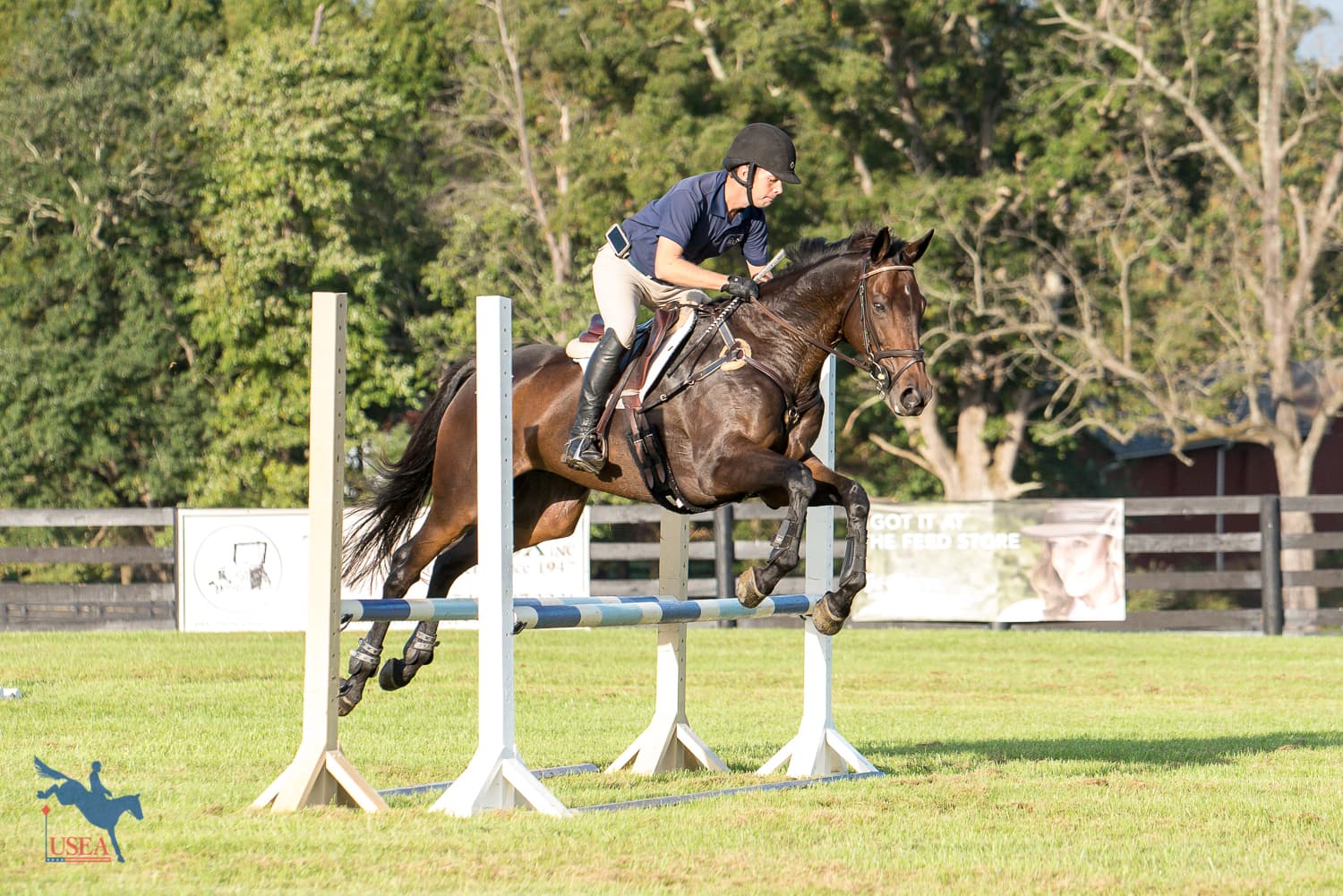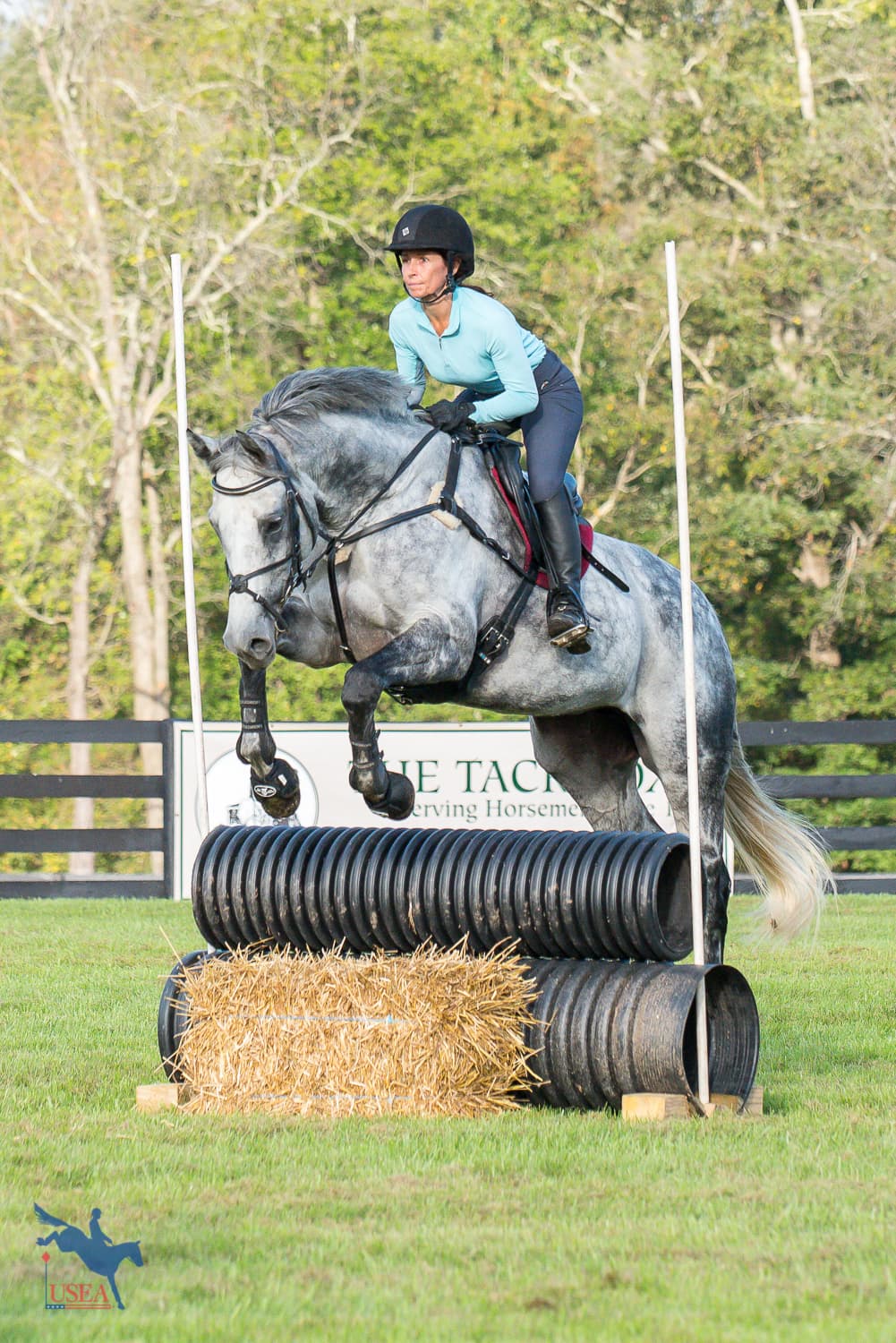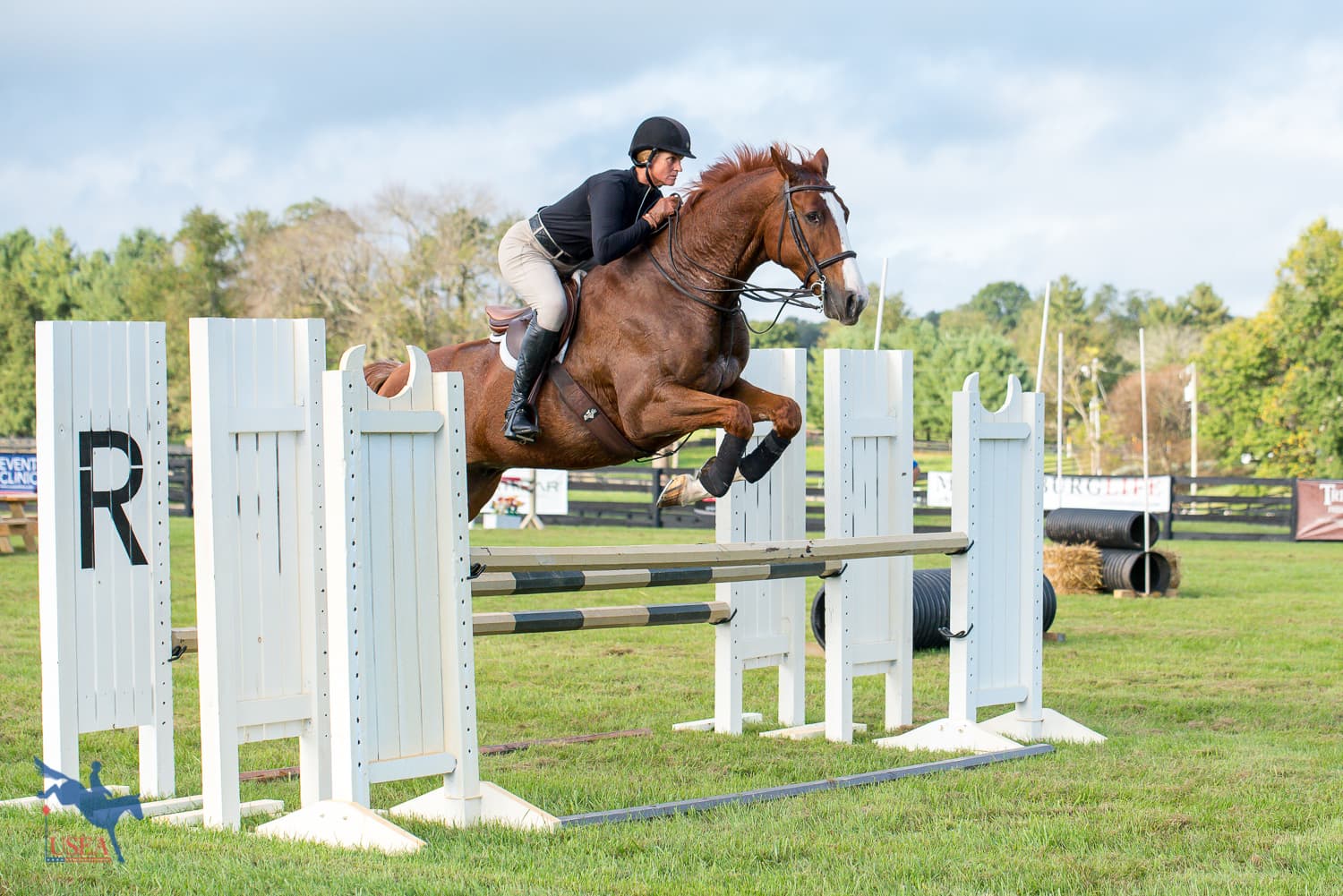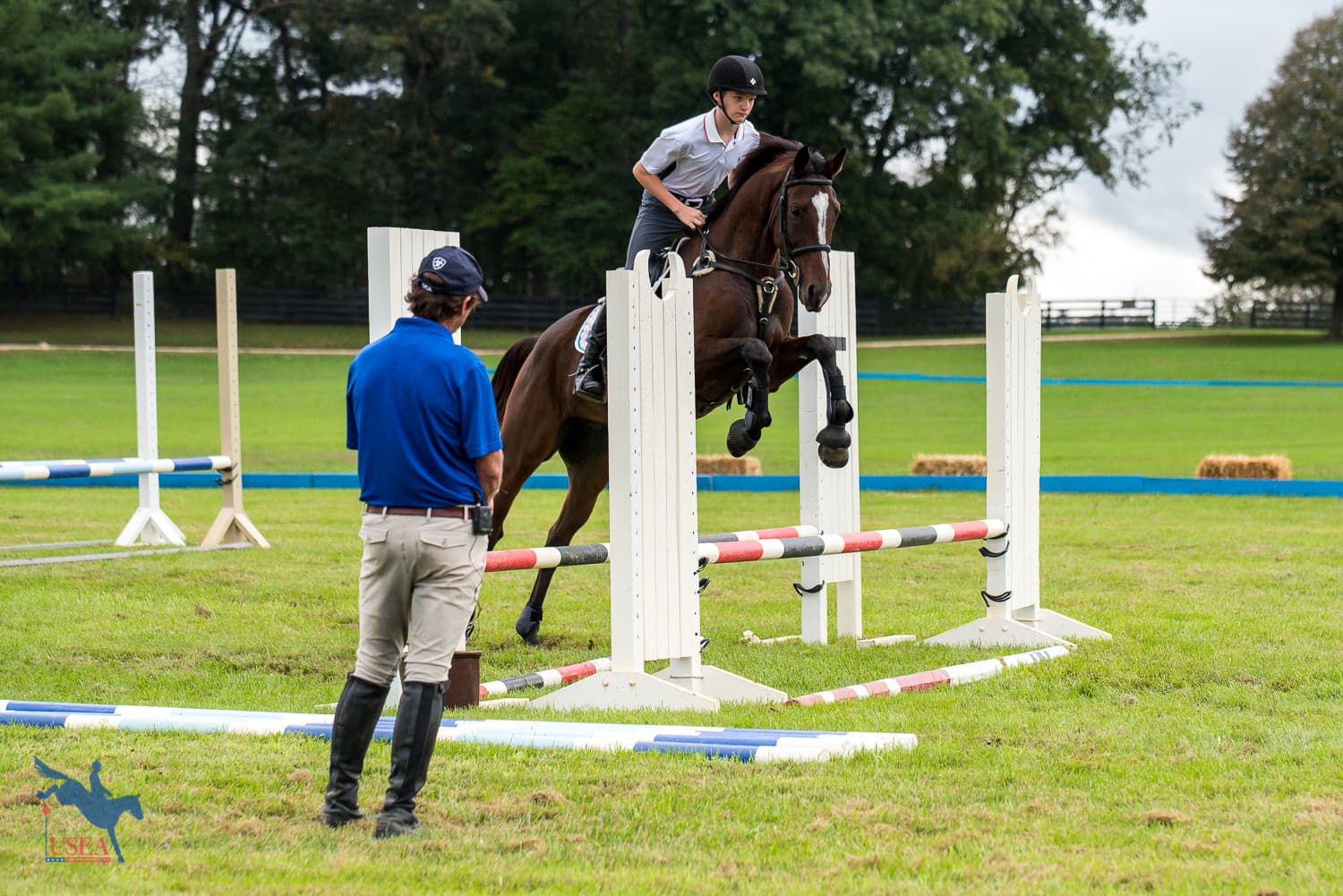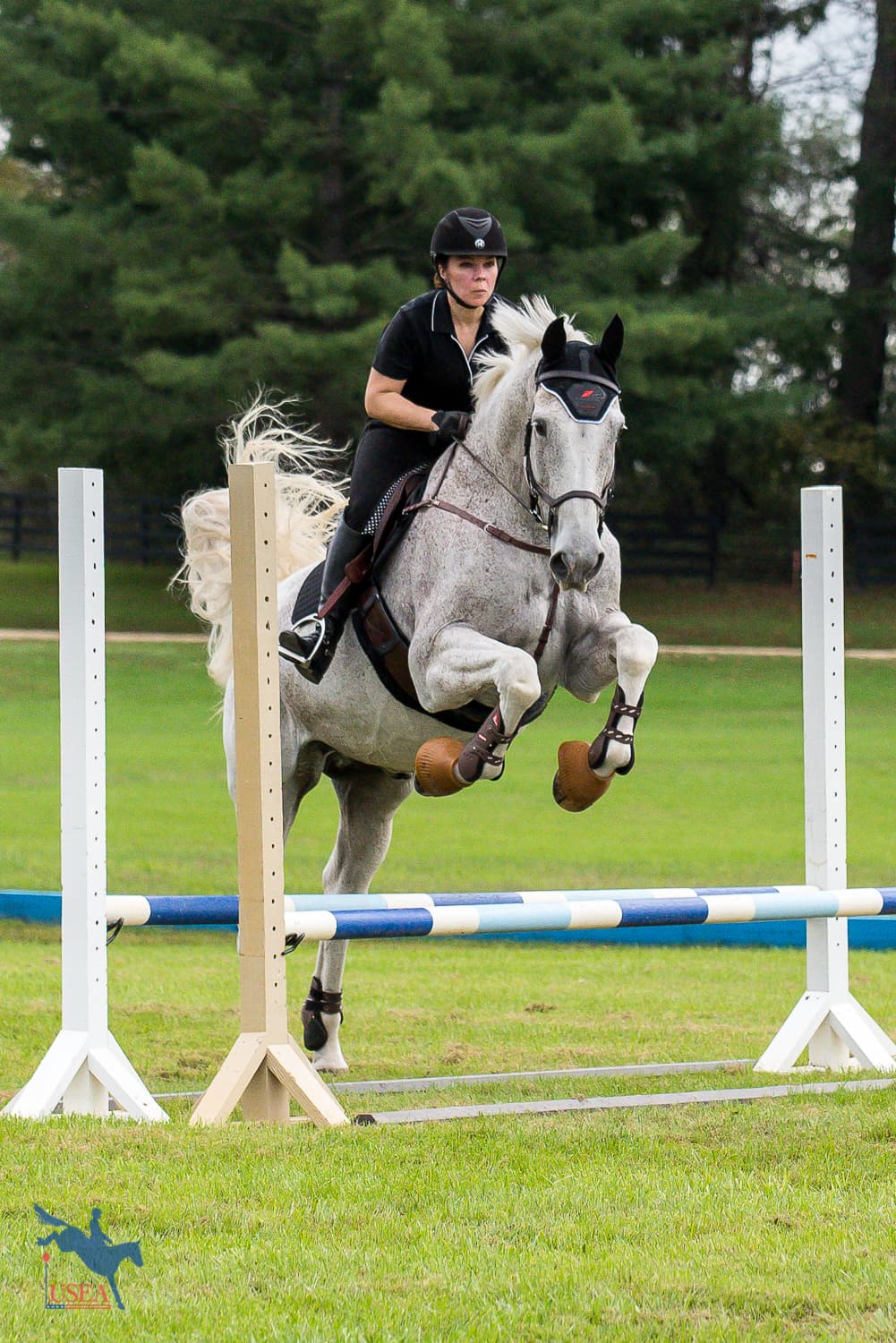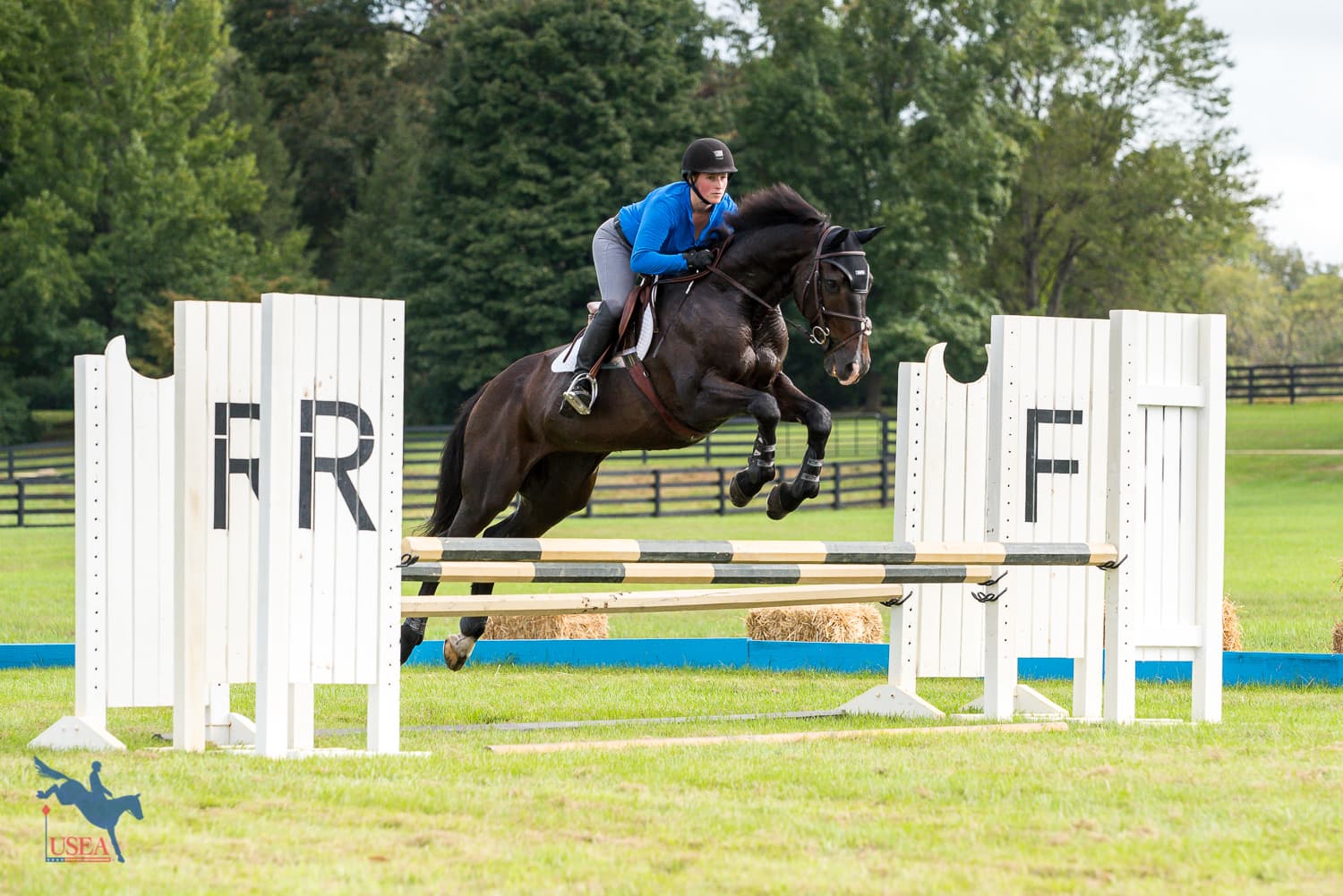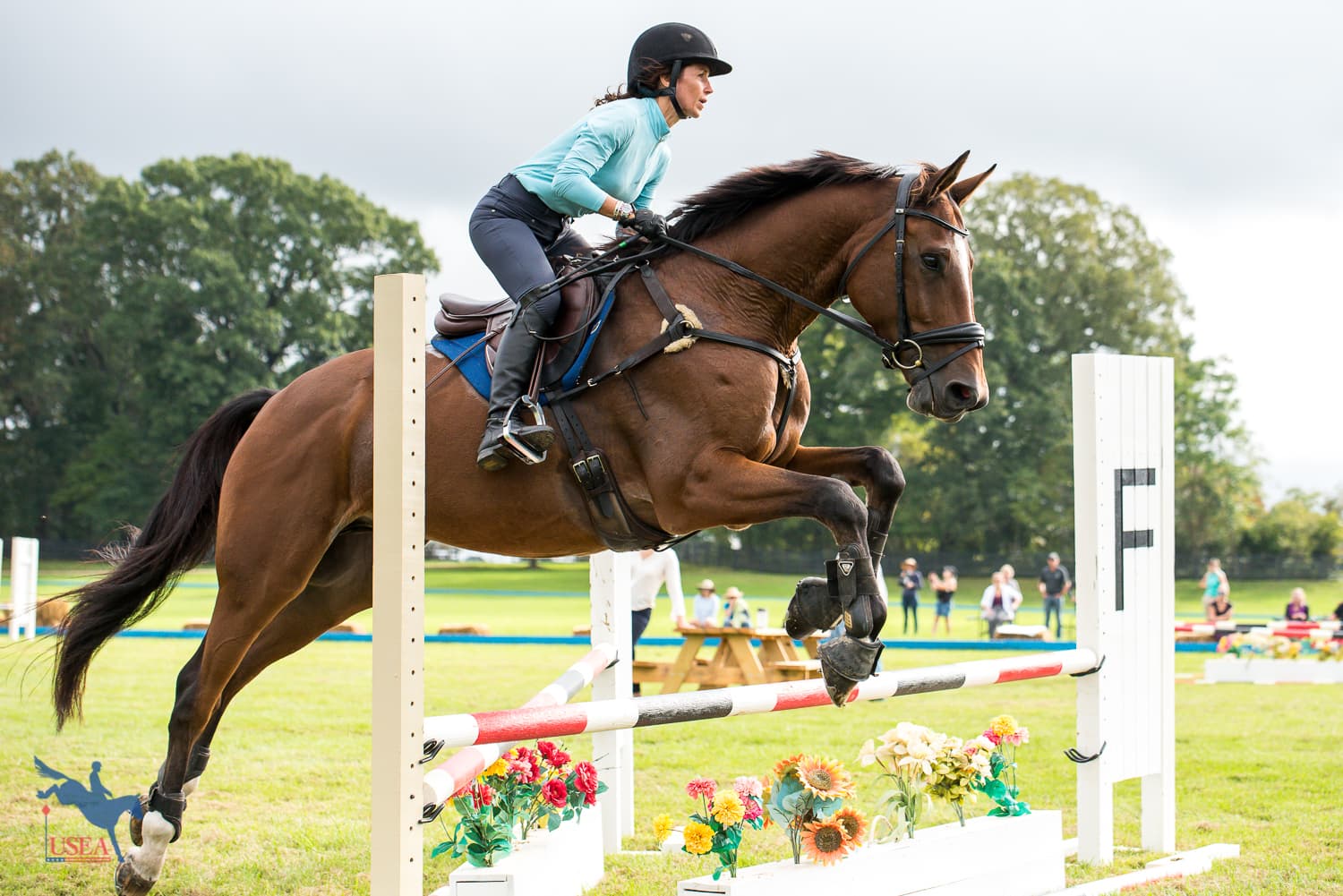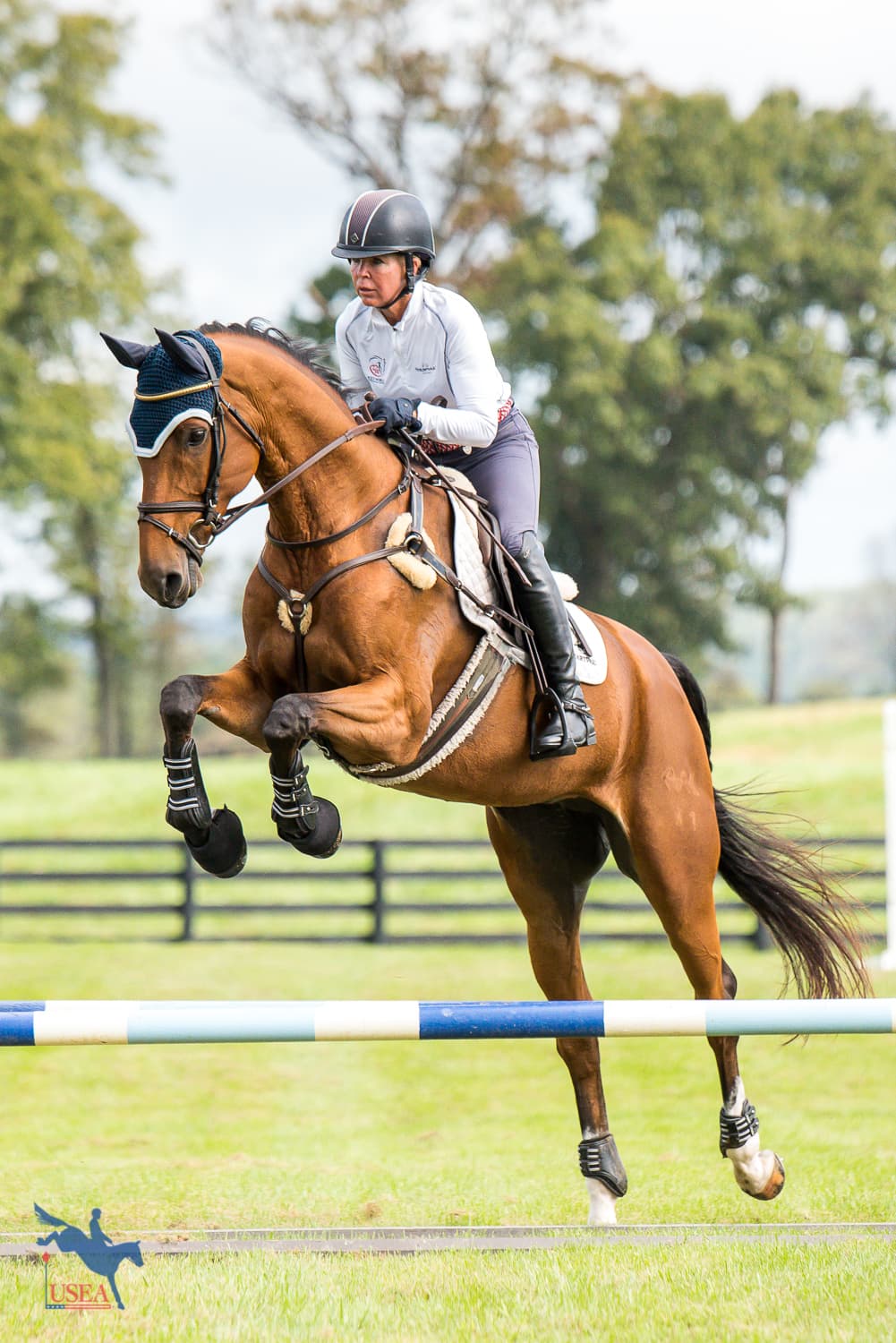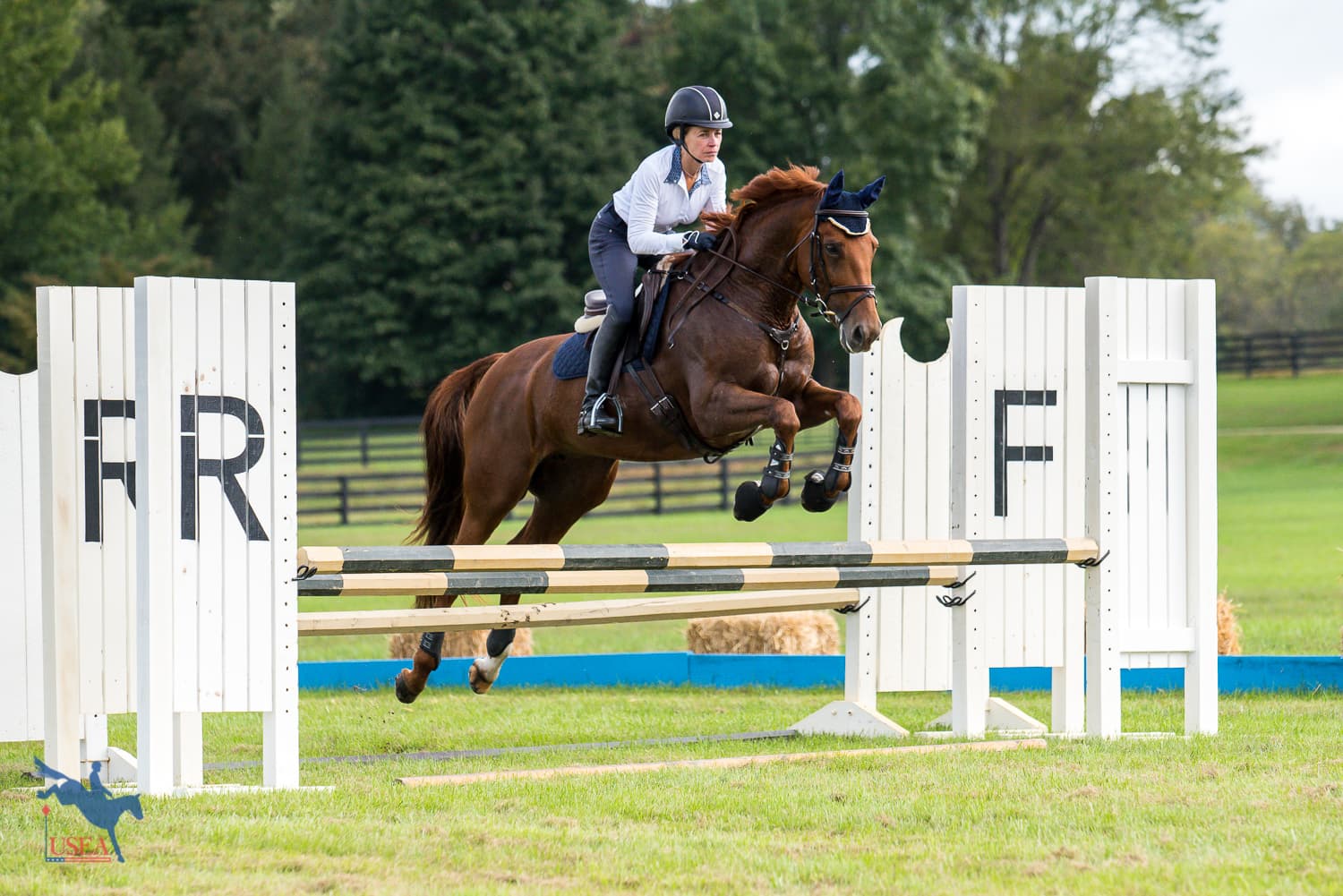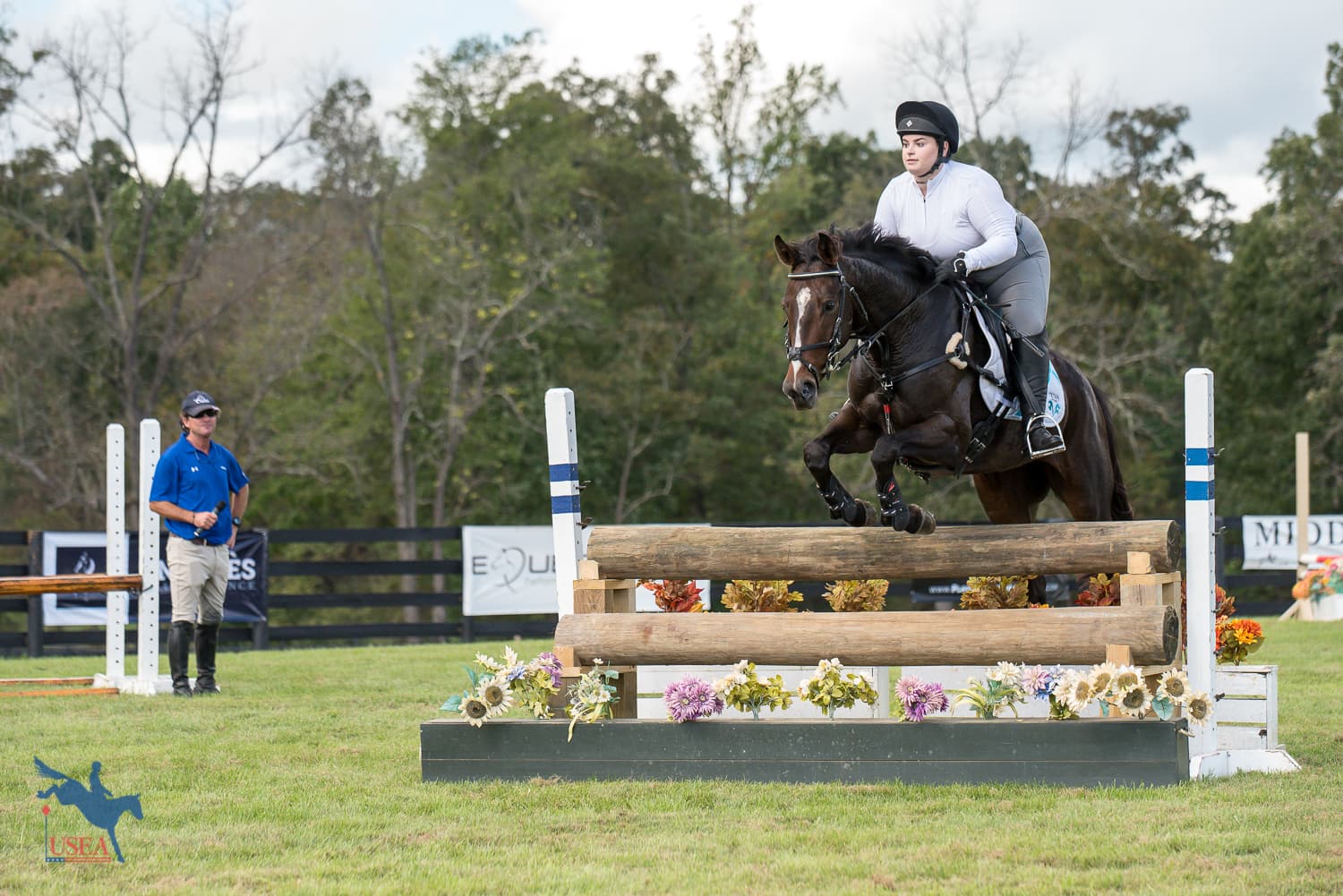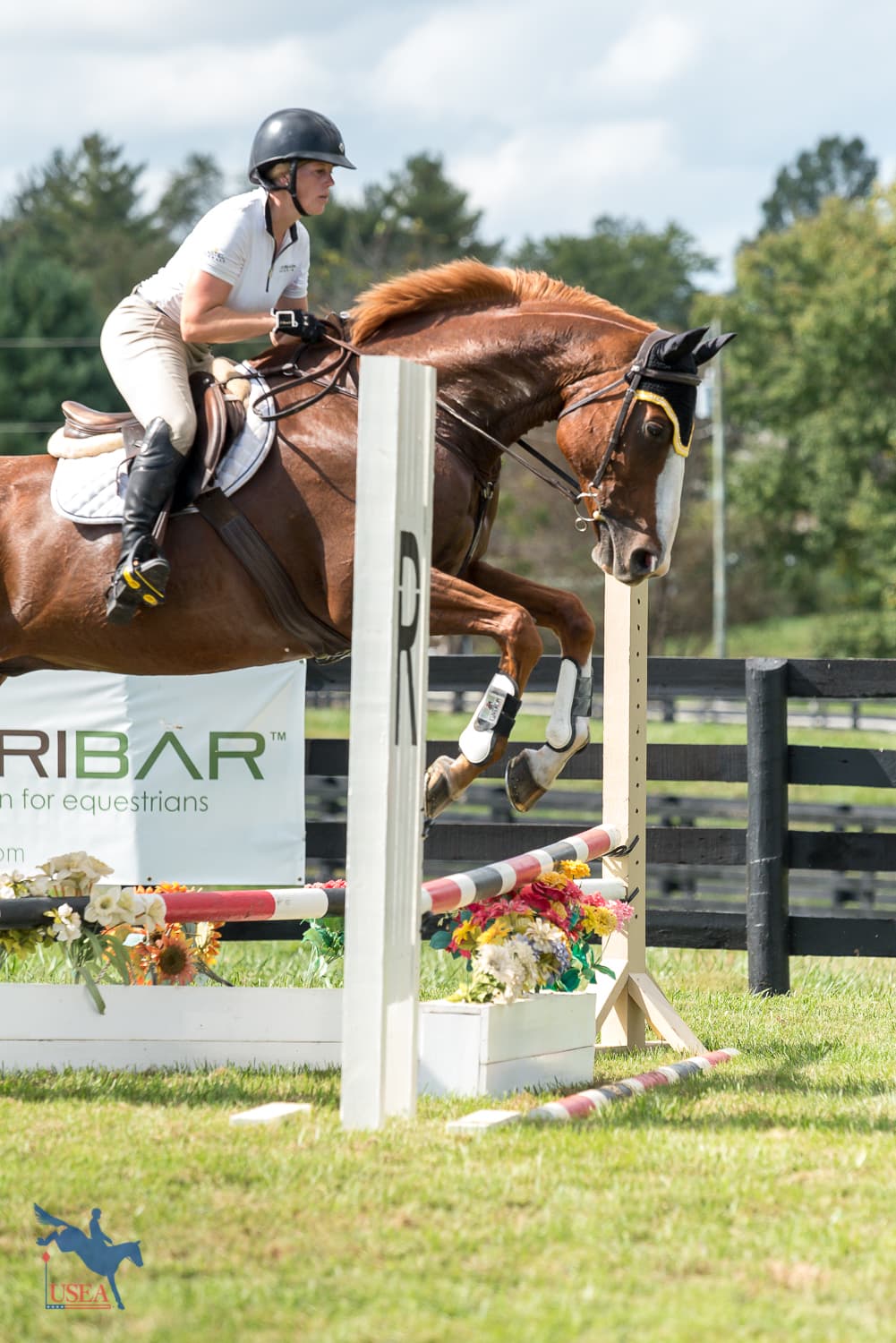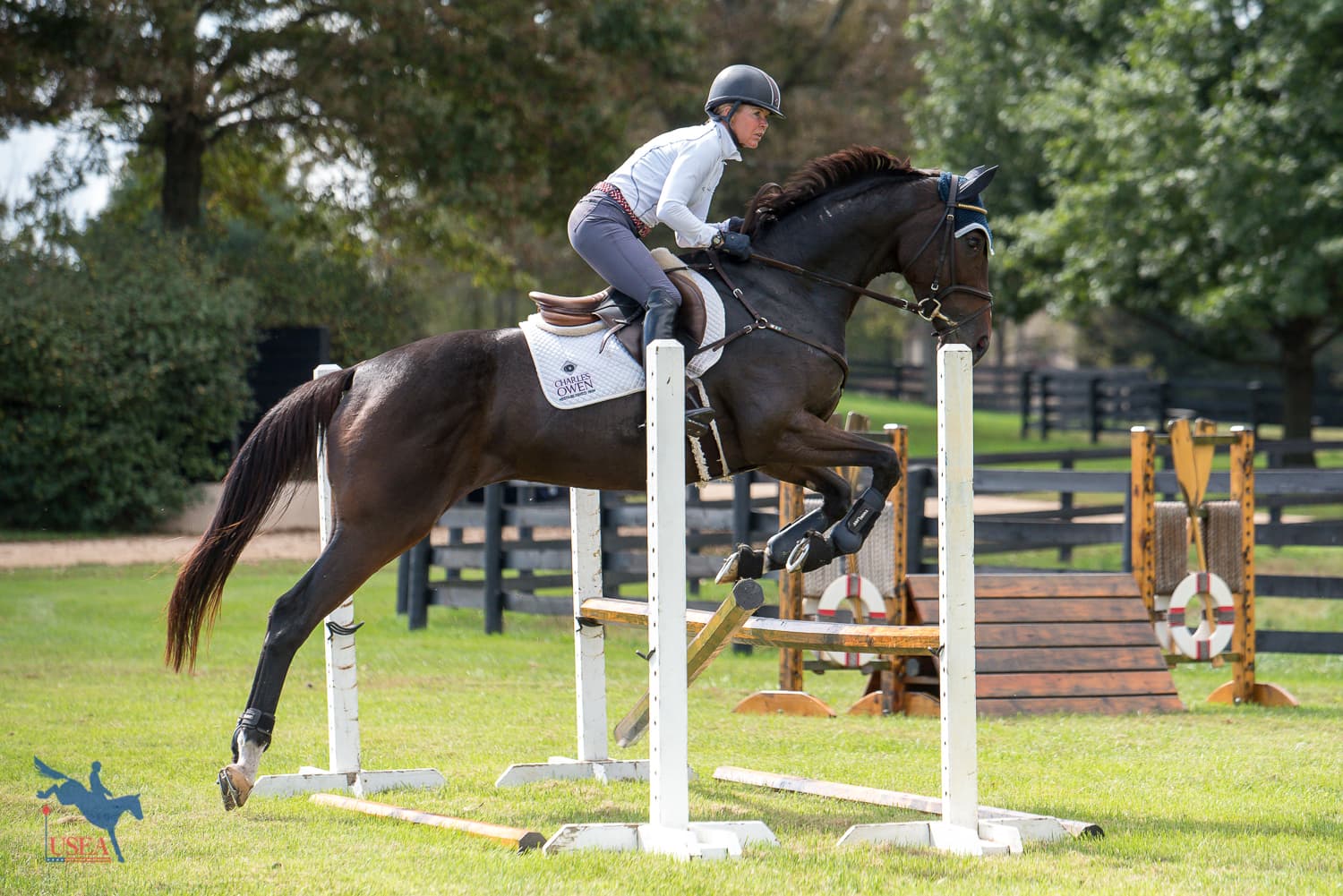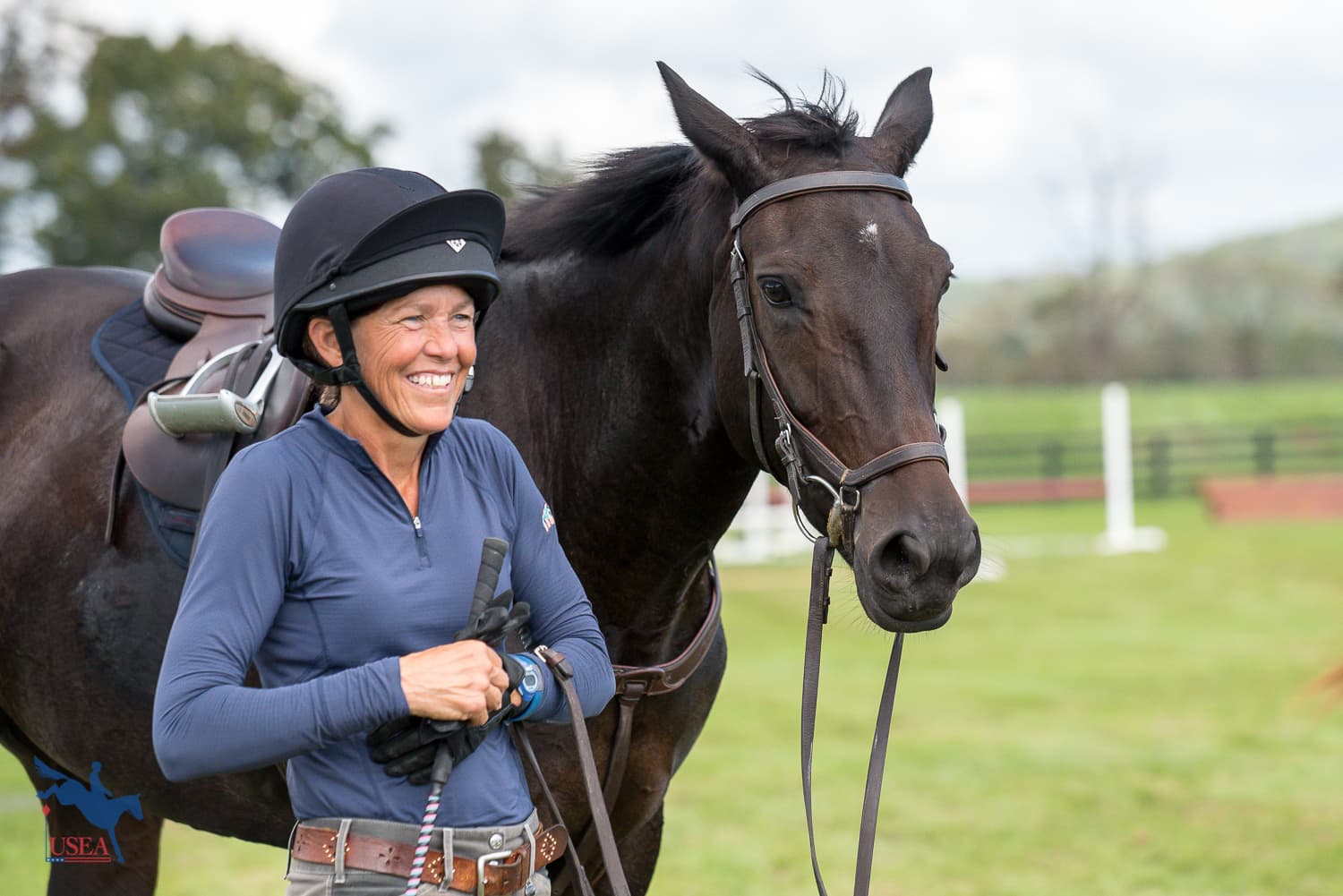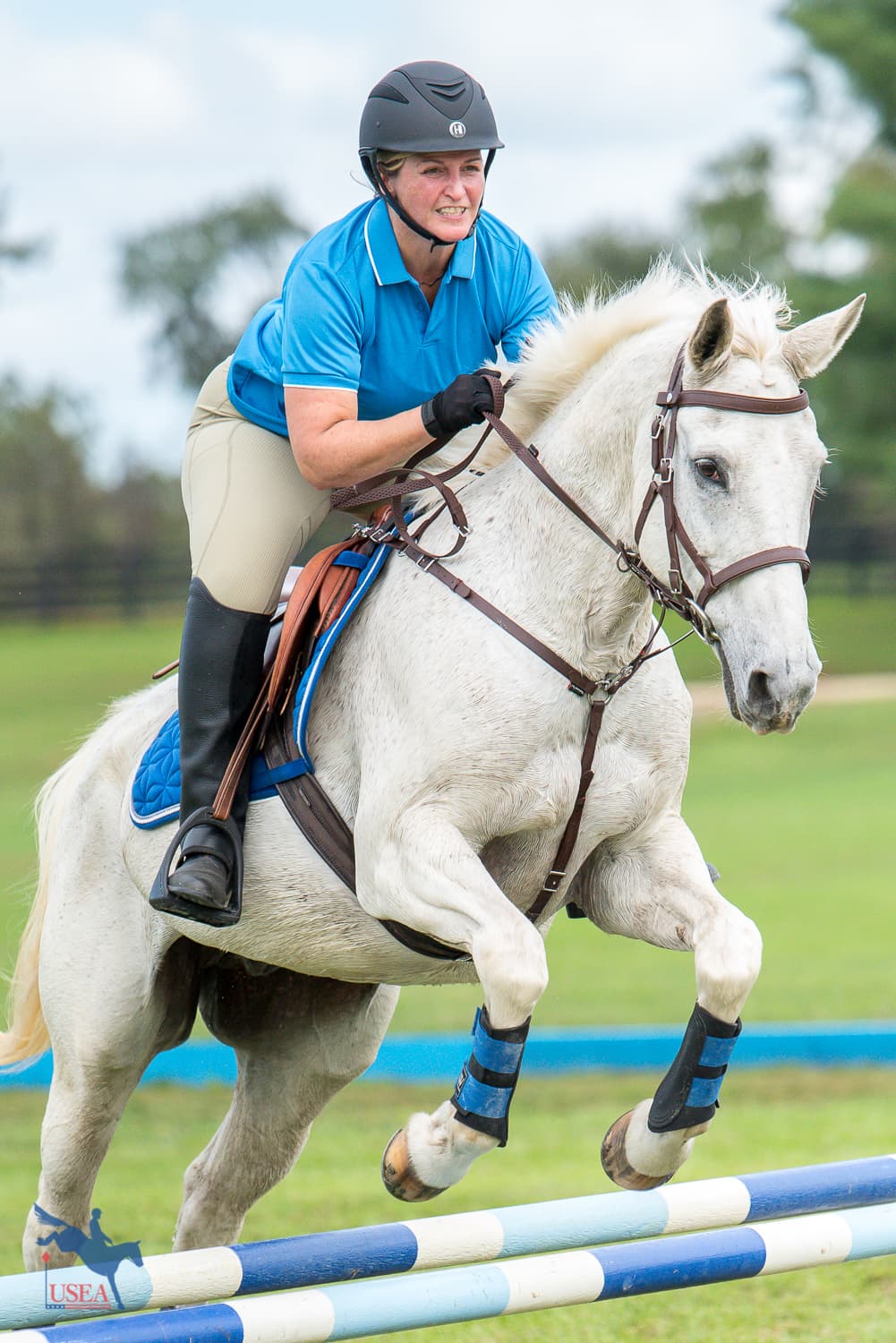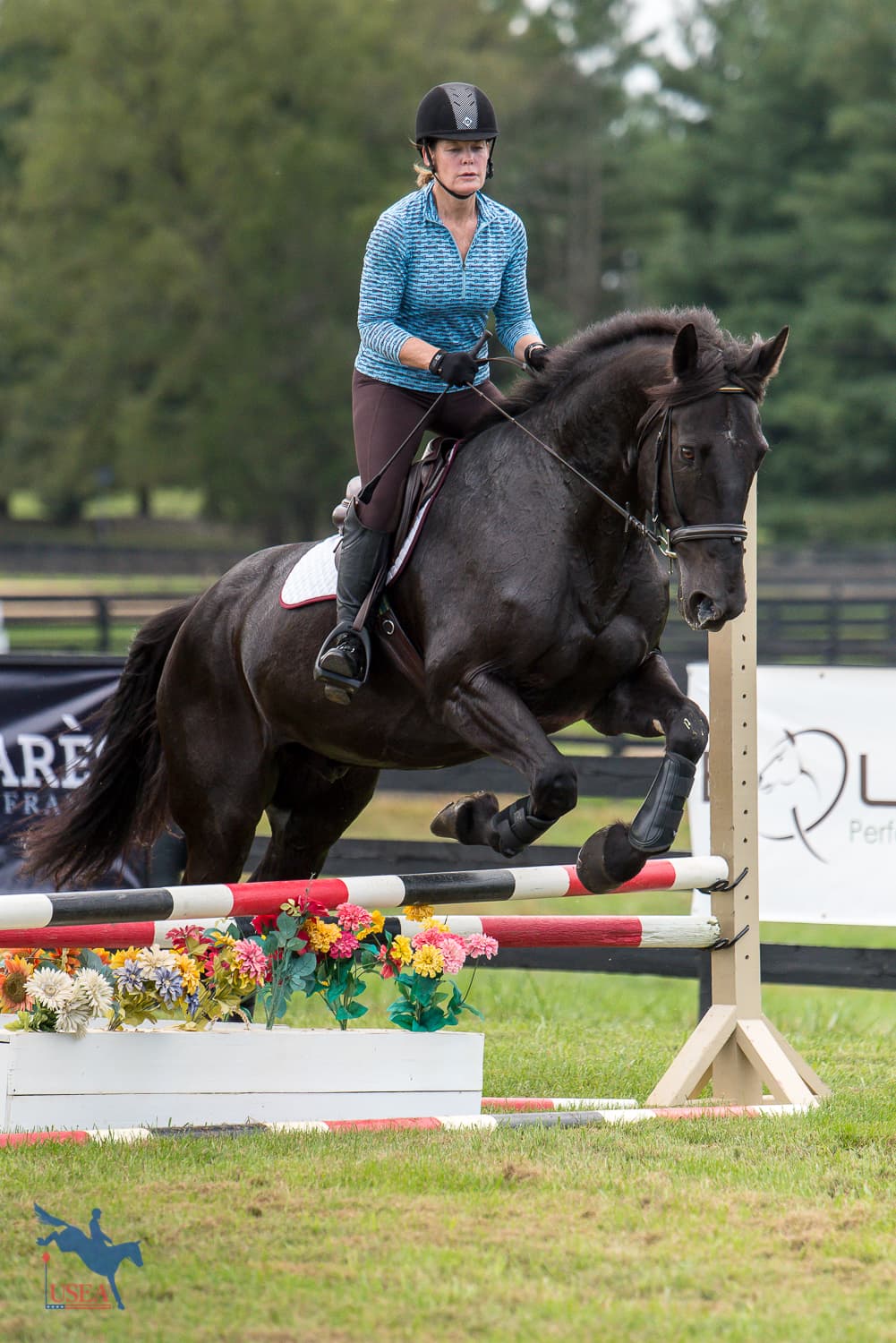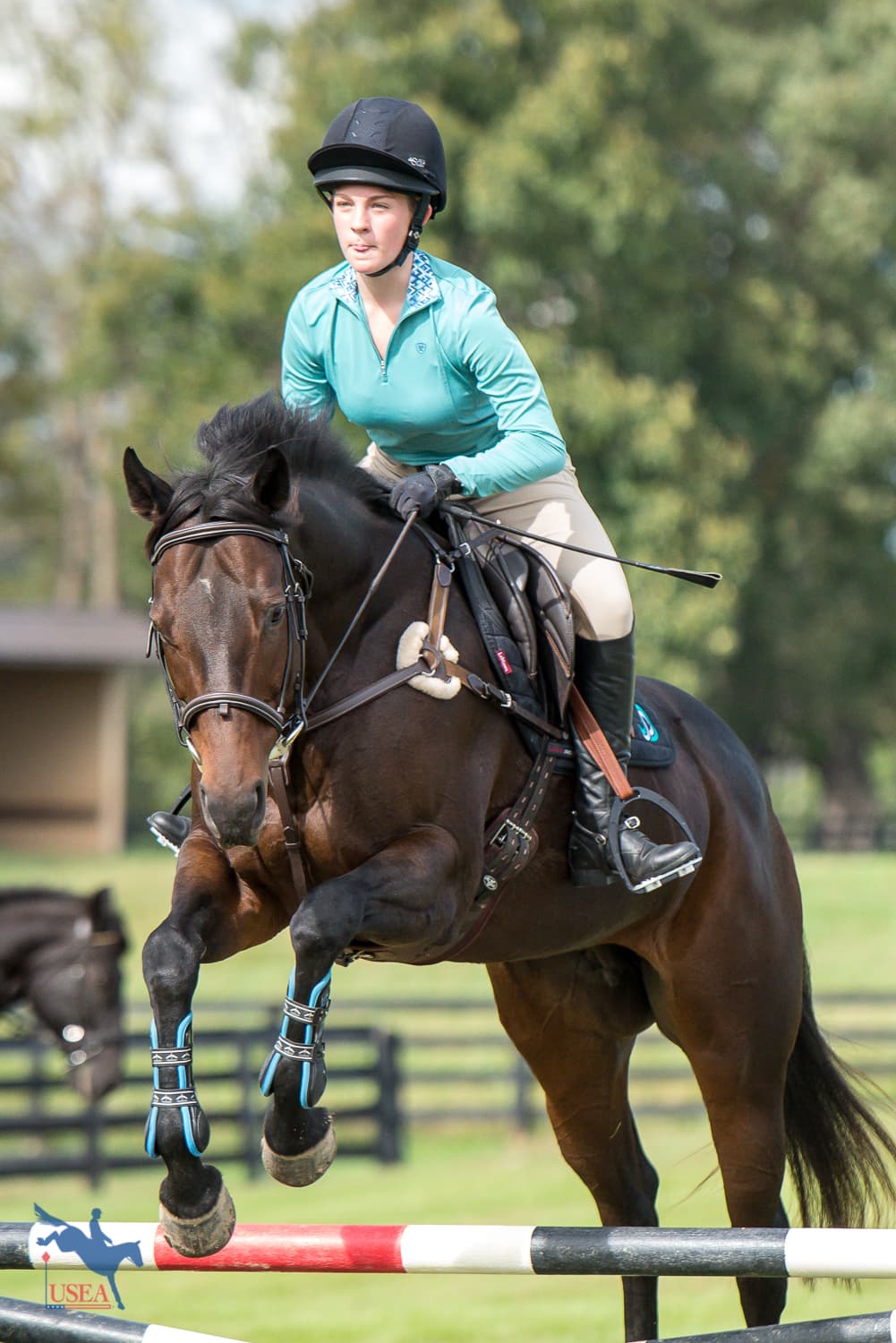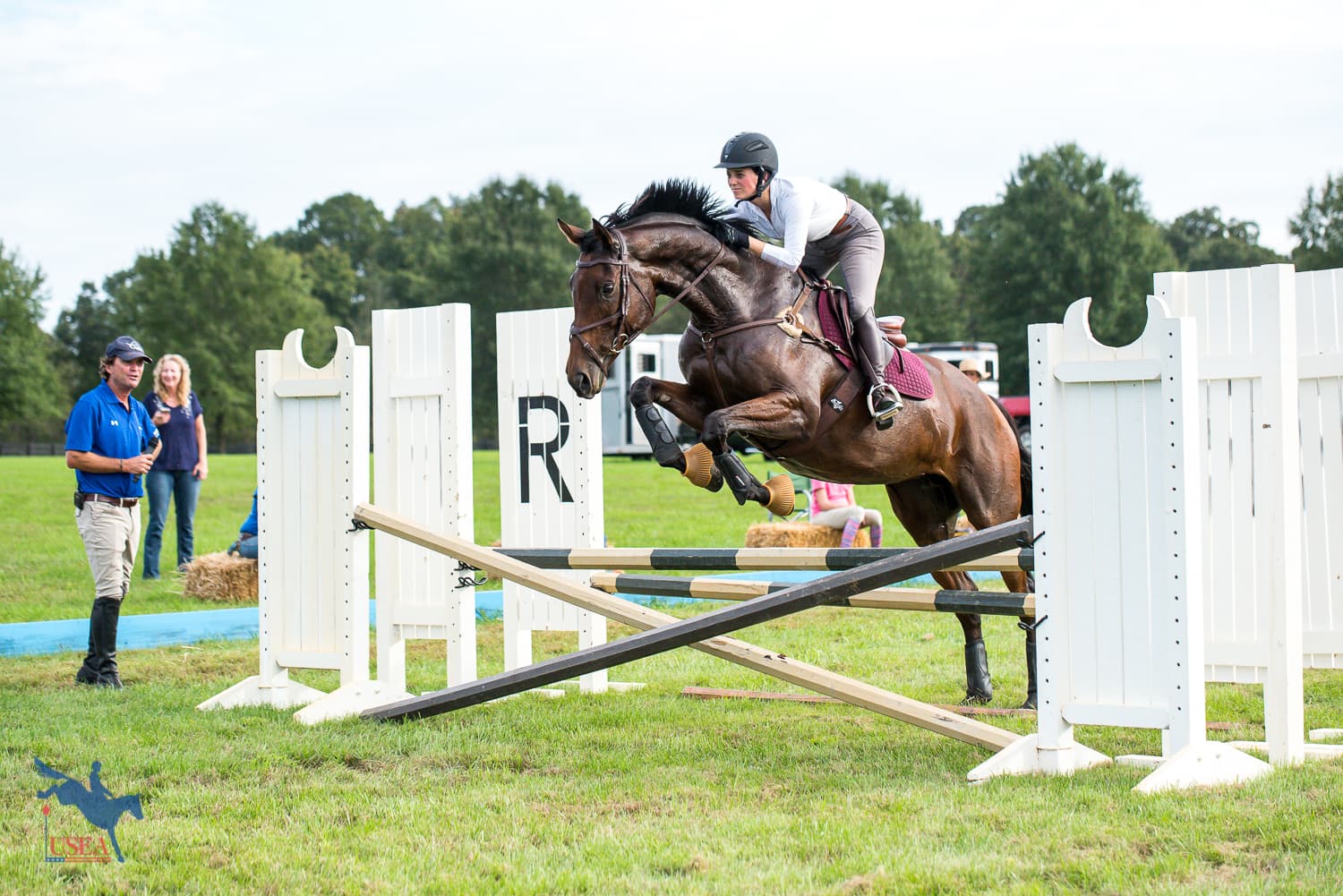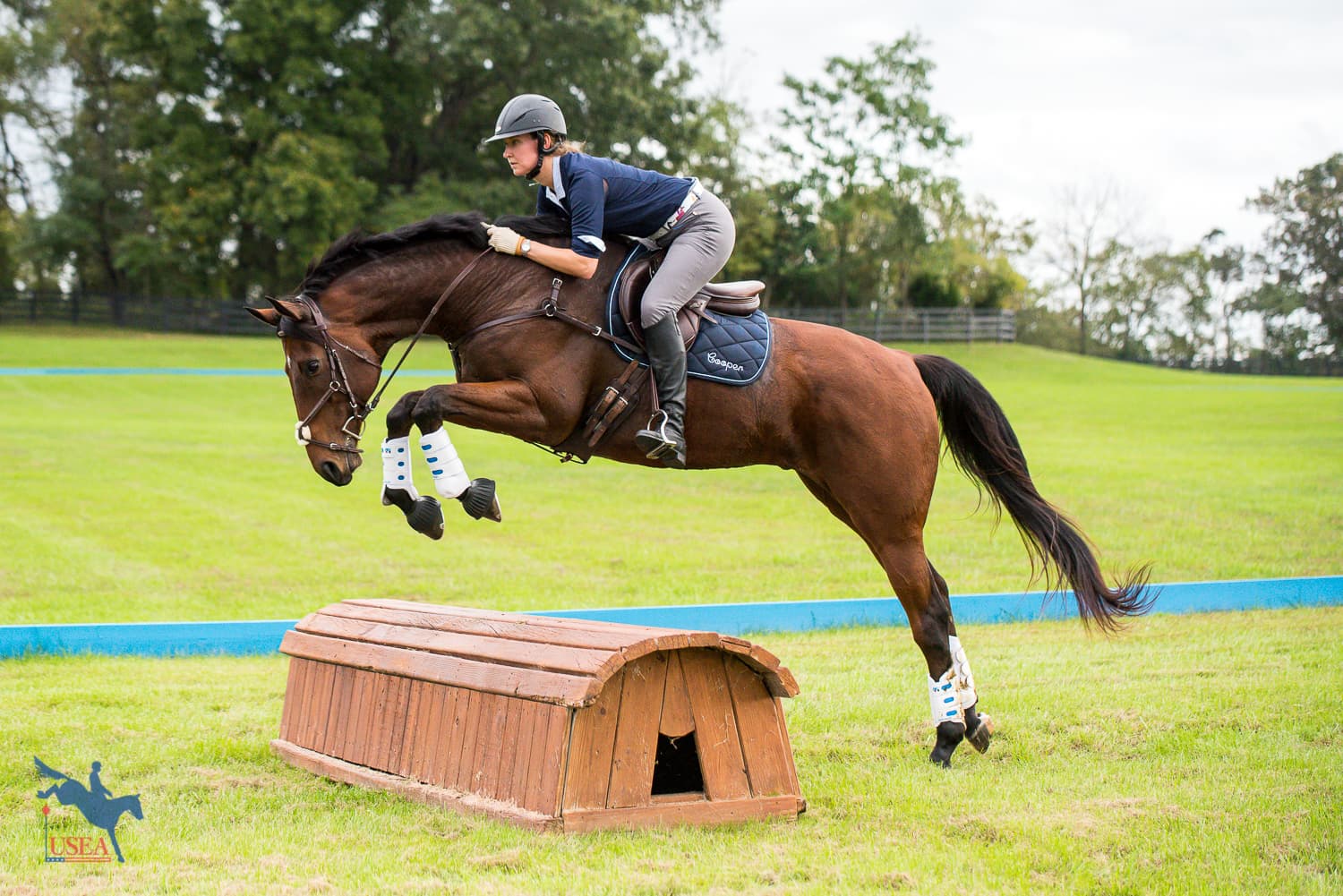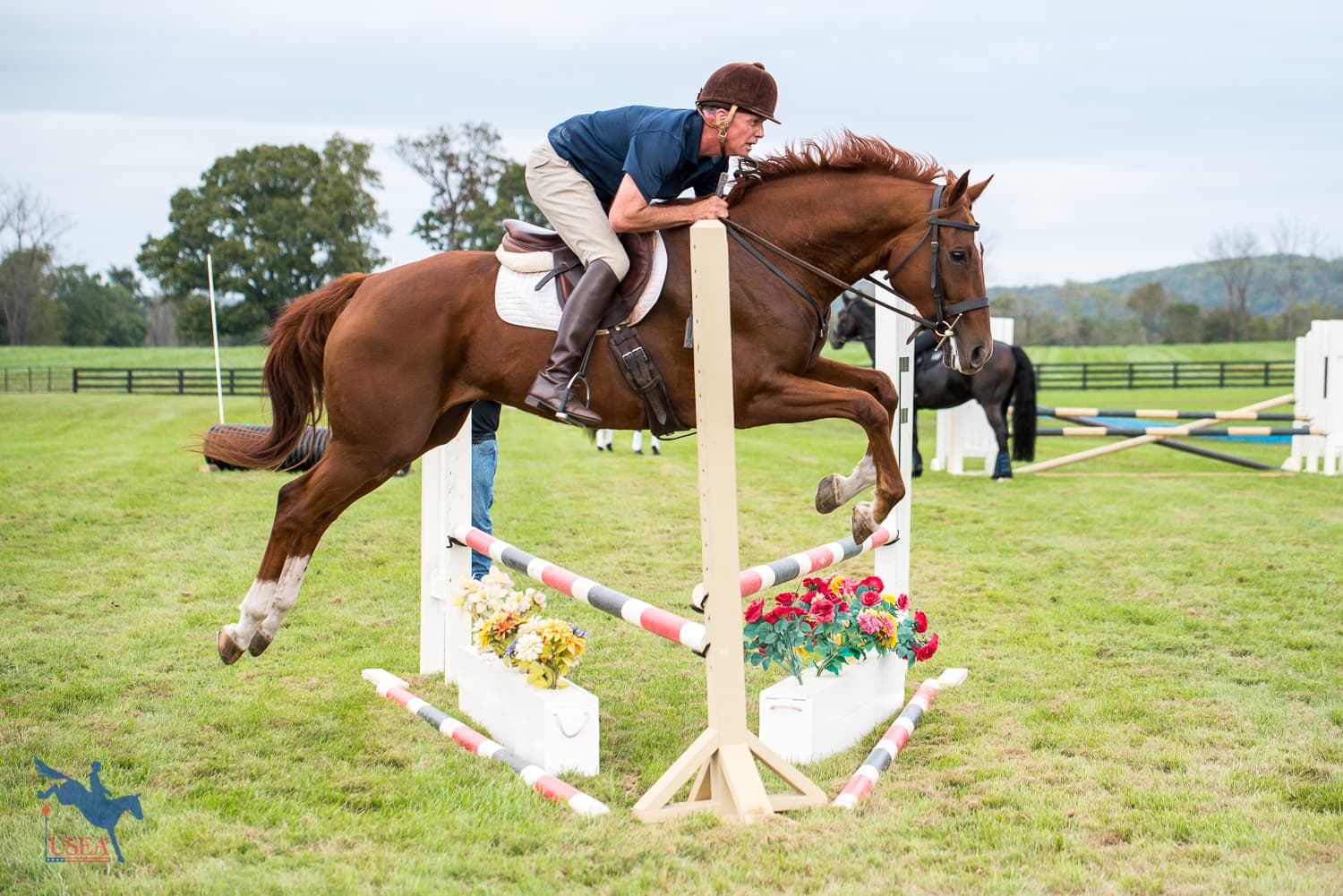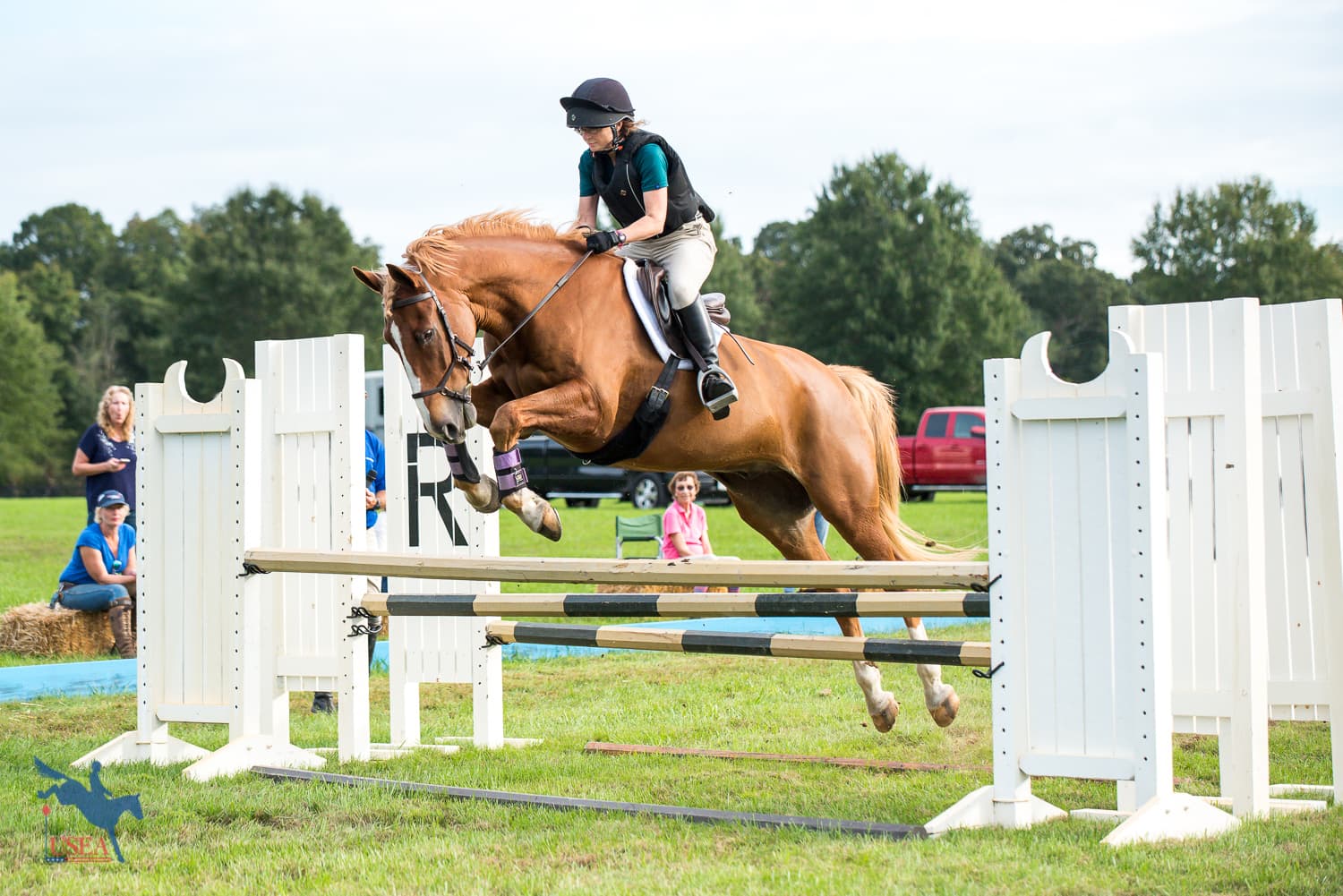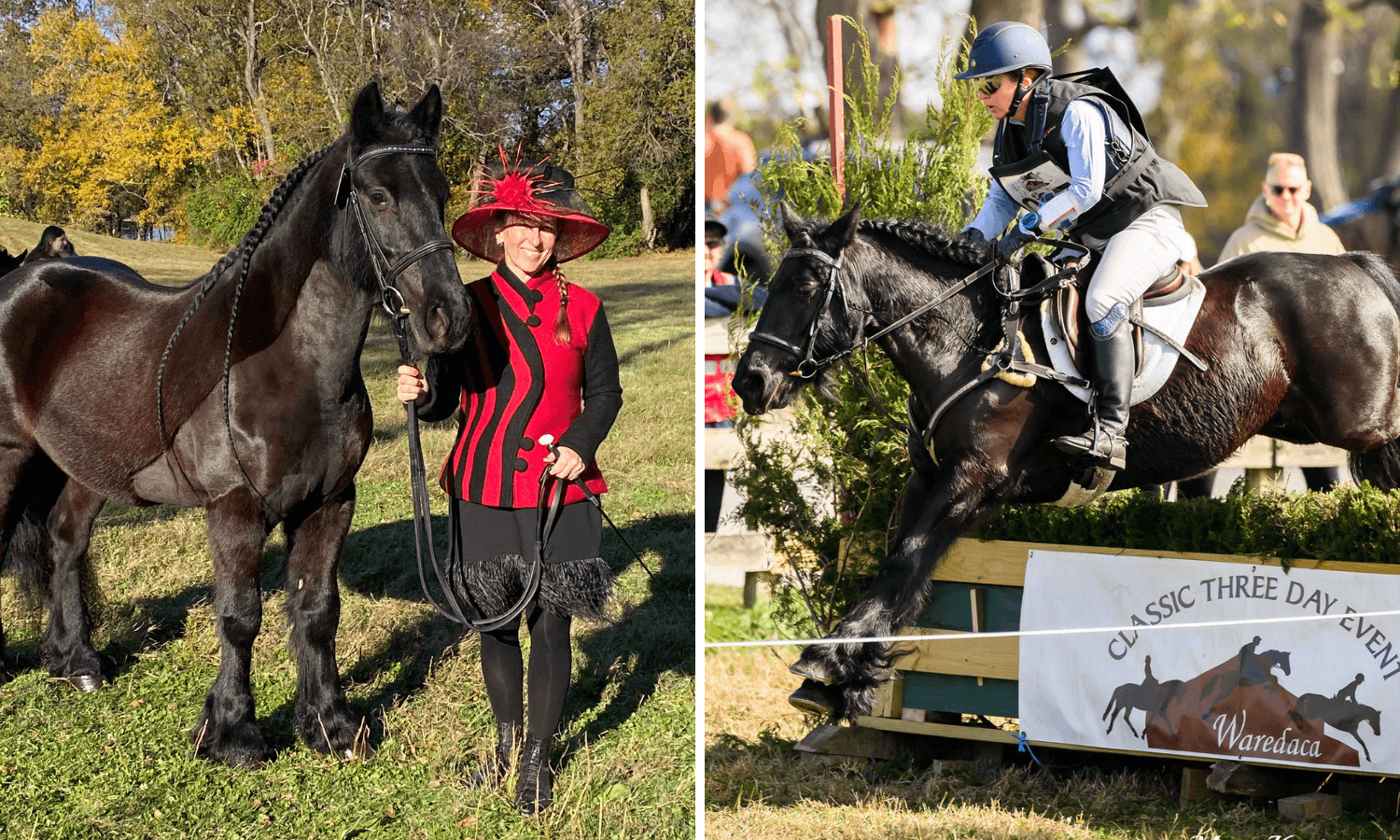Adjustability is the Name of the Game at the Phillip Dutton Clinic at Rutledge Farm
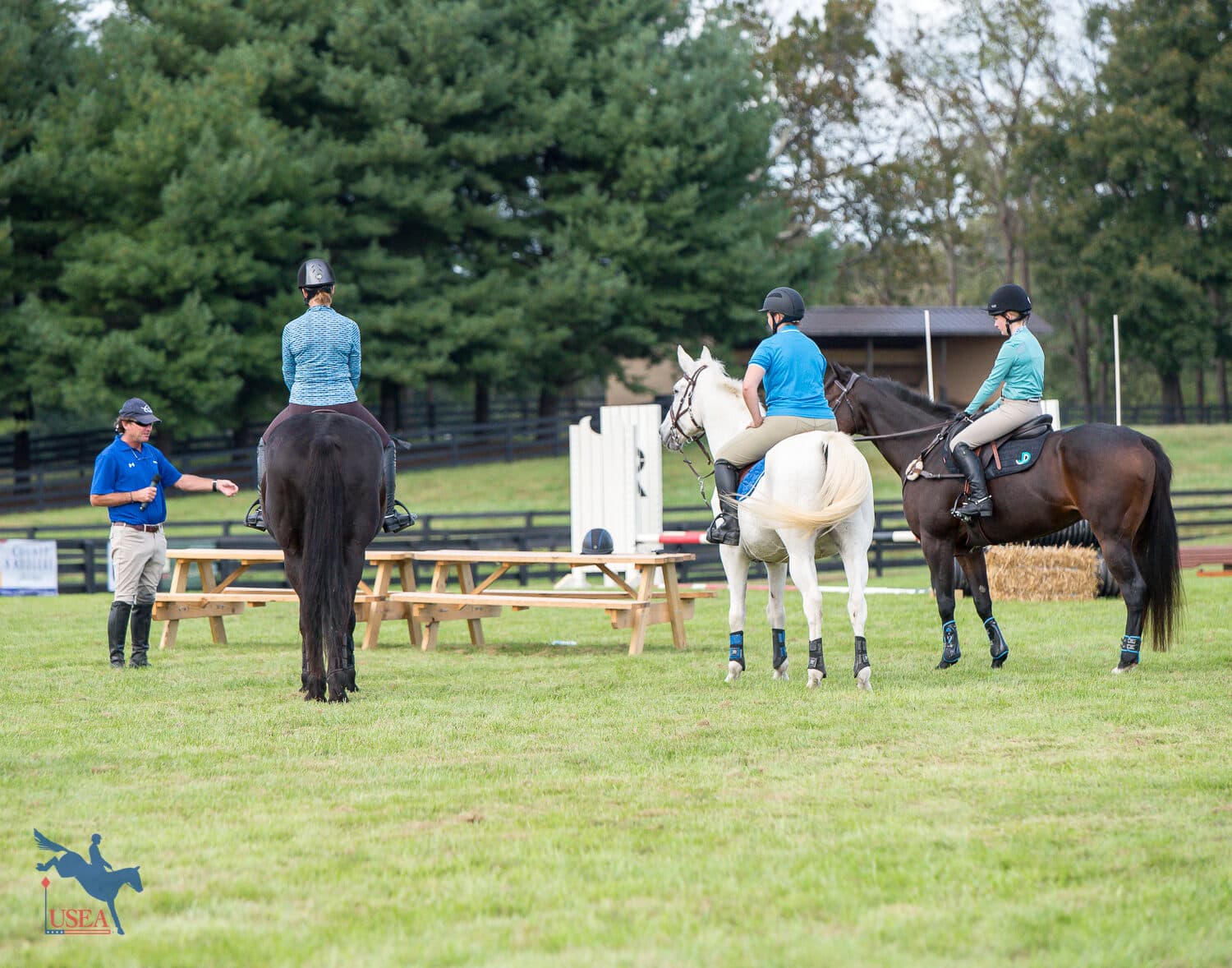
“There’s a common thread between all of our phases, whether it’s dressage, show jumping, or cross-country, and that is the adjustability of your horse,” stated Phillip Dutton at the start of his jumping clinic at Rutledge Farm last week. “To me, the biggest thing in doing well is getting your horse really connected from your leg to your hand. They’ve got to learn that you put your leg on, the hock comes under, and they come up [in front].”
Rutledge Farm in Middleburg, Virginia hosted the two-time gold medalist last Wednesday for a one-day clinic for riders of all levels from Beginner Novice to Advanced. A total of 23 riders turned up for a day of show jumping and cross-country instruction with Dutton, who commented that training is all about making improvements to what you already have. “You don’t change horses, but you can improve them." He used the 90-minute sessions to help each horse and rider make small improvements while keeping the overall focus on improving the connection from leg to hand.
“As you know, [horses] are creatures of habit, so you’ve got to get into the habit of riding the same all the time, whether it’s on the flat or jumping, so [you have] that common thread through all phases,” Dutton elaborated. “So, when you’re riding on the flat you don’t just change completely when you start to jump so the horse understands what you’re doing.”

To develop the connection from leg to hand and the consistency from work on the flat to work over fences, Dutton started each group out with some exercises to help engage the horse’s hind end. He had riders start out with leg yields in both directions to establish the connection between the inside leg and the outside rein, encouraging the riders to “make sure you keep testing the connection from the leg to the rein. The key is getting a reaction.”
In the canter, Dutton had riders lengthen and shorten the canter stride, insisting that horses react immediately to the pressure of the leg by moving forward. “[By] being a little bit firm in your flatwork, everything will be sharper and better when you start to jump. [The horse should understand] that you put your leg on and his back legs come under.”

Once the horses and riders were warmed up on the flat and the horses were moving well off the leg, Dutton had the riders warm up over a single small oxer. “We don’t want to change the way we ride when we start to jump,” he cautioned. Dutton instructed riders to land from the jump and leg yield to the left or right, based on which lead they landed on, to continue encouraging the leg-to-hand connection. “You want to get in the habit of landing and connecting your horse. Don’t let your horse forget all the work we just did. Just because you start to jump doesn’t mean you let him change.”
From there, Dutton added in a second small oxer on a two-stride angled line, giving the horses and riders and introduction to the precision and accuracy that would be necessary throughout the rest of the lesson. “Feel that you can understand where his shoulders are, where his hindquarters are, so you can ride the whole horse,” Dutton encouraged. “Get your eye up and give yourself as much time as you can to prepare. Once your line is there, then you can go.”
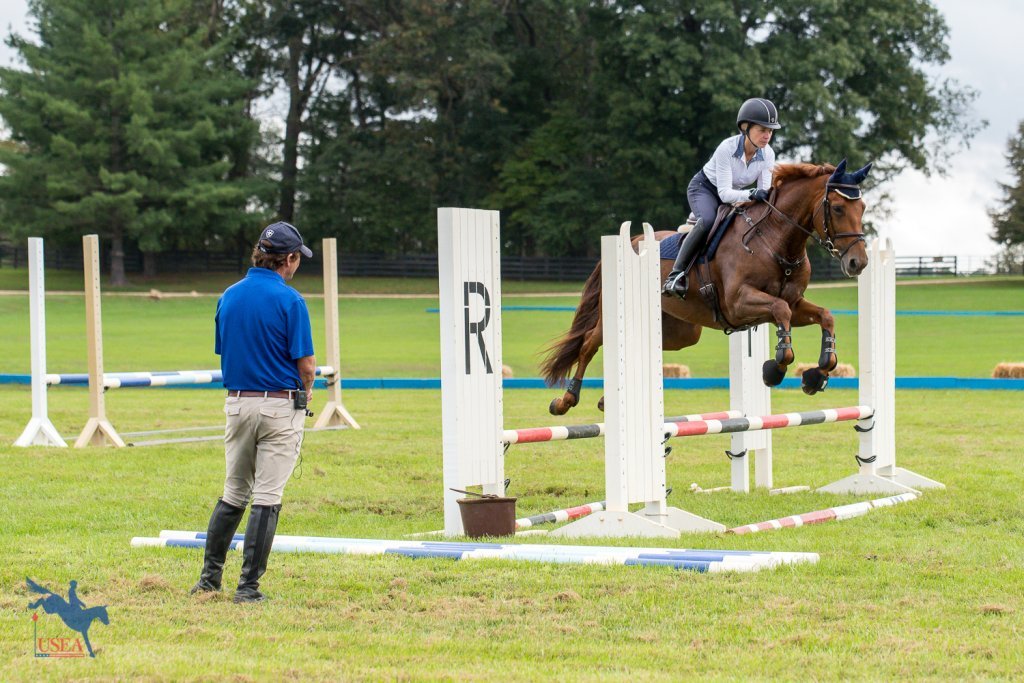
Each session continued with short courses encompassing different lines that demanded accuracy from the horse and rider – accuracy that Dutton stressed would not be possible without the connection from leg to hand. Dutton made use of numerous corners and skinnies, both of which increased the demand for accuracy from the participants.
Following the accuracy questions, Dutton then incorporated in galloping fences to make sure the horse was in front of the leg and could adjust from the short, quick stride necessary for the accuracy questions to the bold galloping stride necessary on cross-country. “You want to get your horse so you can go forward any time you want, or come back and be able to control your horse on the turn,” he explained. “This is particularly important in the cross-country where a lot of combinations are off a turn.”
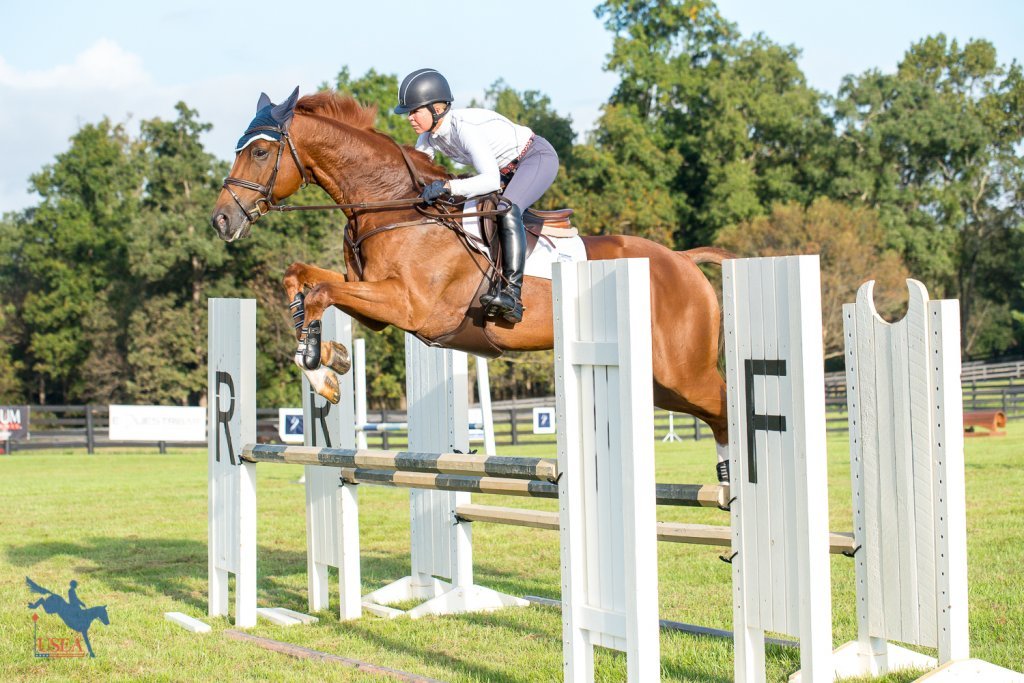
To end each session, Dutton gave riders a course that would require them to adjust between a bold, galloping stride and a shorter, quicker stride. Riders would begin over a series of cross-country or galloping fences and then have to shorten the stride for an accuracy question, such as an angled line to a corner, or a bending line from oxer to corner. “There are all different kinds of approaches and all different kinds of riding,” Dutton reminded the riders, encouraging them to select the approach and type of ride most appropriate for each question on course. “I want you all to think about the canter you have underneath you, stay in the moment, and react to what your horse is doing.”
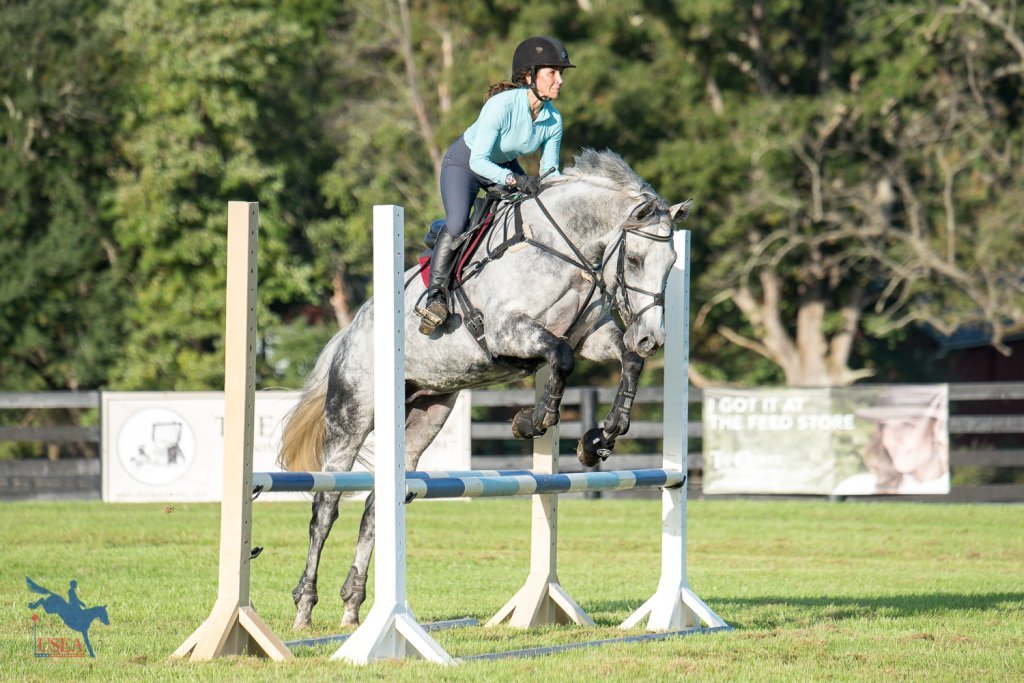
Dutton’s patient and positive approach yielded positive feedback from the riders at the clinic. “He really emphasized the idea that you have to go forward before you can establish a connection,” said Samantha Haynie, who participated in the Beginner Novice group with her gelding, Cooper. “I loved that he said it's not about being perfect, it's about getting a reaction. He was very positive and encouraging.”
“I’m pretty new to eventing and the Phillip Dutton clinic at Rutledge Farm was an opportunity I couldn’t pass up with my new mare,” said Catherine Ramsey, another attendee at the clinic with her mare, Rivi. “The exercises asked different questions and gave us a lot to bring home and think about, and I got so much more than I bargained for with Phillip asking to ride my horse. She gets super strong on the approach to jumps, and he helped her figure out how move up in front of the leg and into the hand to properly use herself and slow down. She felt so much more balanced, confident, and adjustable after his ride.”
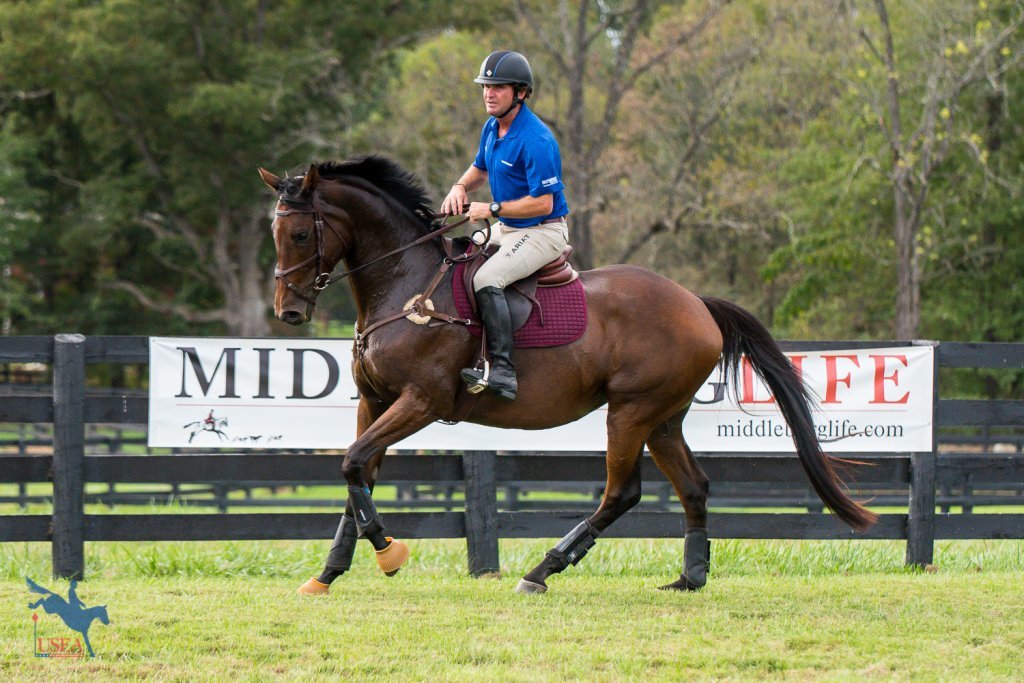
Event Clinics works in partnership with Rutledge Farm to organize and promote the Rutledge Farm Sessions, a clinic series featuring gold medal-winning Olympic riders in the heart of Northern Virginia's horse country. Keep an eye on the Event Clinics website for more details on upcoming clinic opportunities at Rutledge Farm.
A special shoutout to the Salamander Resort for providing lodging for the Rutledge Farm Session clinicians and 50 percent off room reservations for riders attending the sessions.
About Phillip Dutton
Phillip Dutton is a two-time Olympic gold medalist who represented first Australia and then the United States in international competition, including the Olympics, World Equestrian Games, and Pan American Games. He has been named the U.S. Leading Rider of the Year more than 10 times and was the number one FEI World Eventing Rider in 2005. Phillip and his wife, Evie, own, manage, and train out of True Prospect Farm in West Grove, Pennsylvania, and at their Red Oak Farm in Aiken, South Carolina.
About Rutledge Farm
In 1985, Mr. and Mrs. Greenberg purchased Rutledge Farm and set to work creating a world-class Thoroughbred racehorse breeding operation from the ground up. Over the years, Rutledge Farm produced greats such as the 1993 Belmont winner Colonial Affair, steeplechasing legend Sur La Tete, and Equibase speed figure record-setter Researcher. In 2015, Mr. Greenberg’s youngest son, Aleco, along with his mother, put the farm in a conservation easement and set about converting Rutledge Farm into a multi-use performance horse facility. In 2018, Rutledge Farm began hosting the Rutledge Farm Sessions, a series of clinics hosted by gold medal-winning equestrians.
